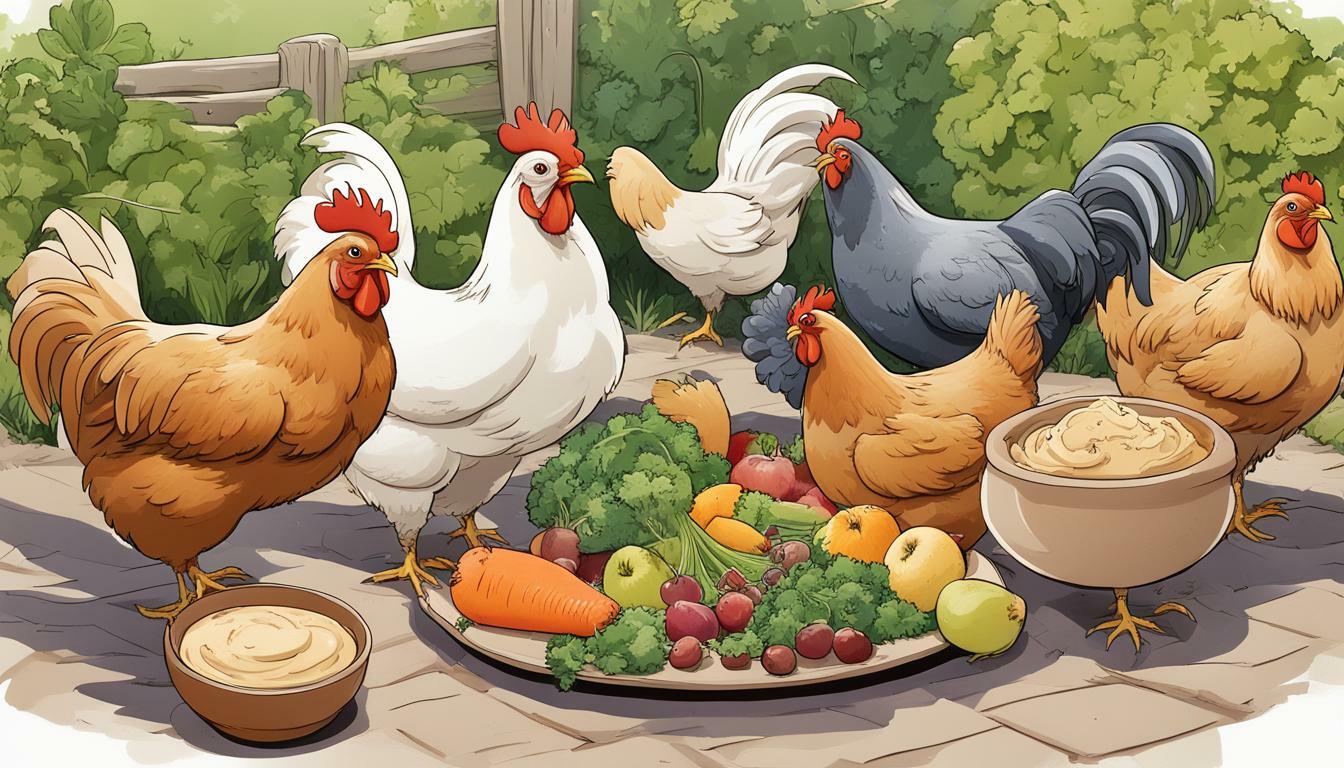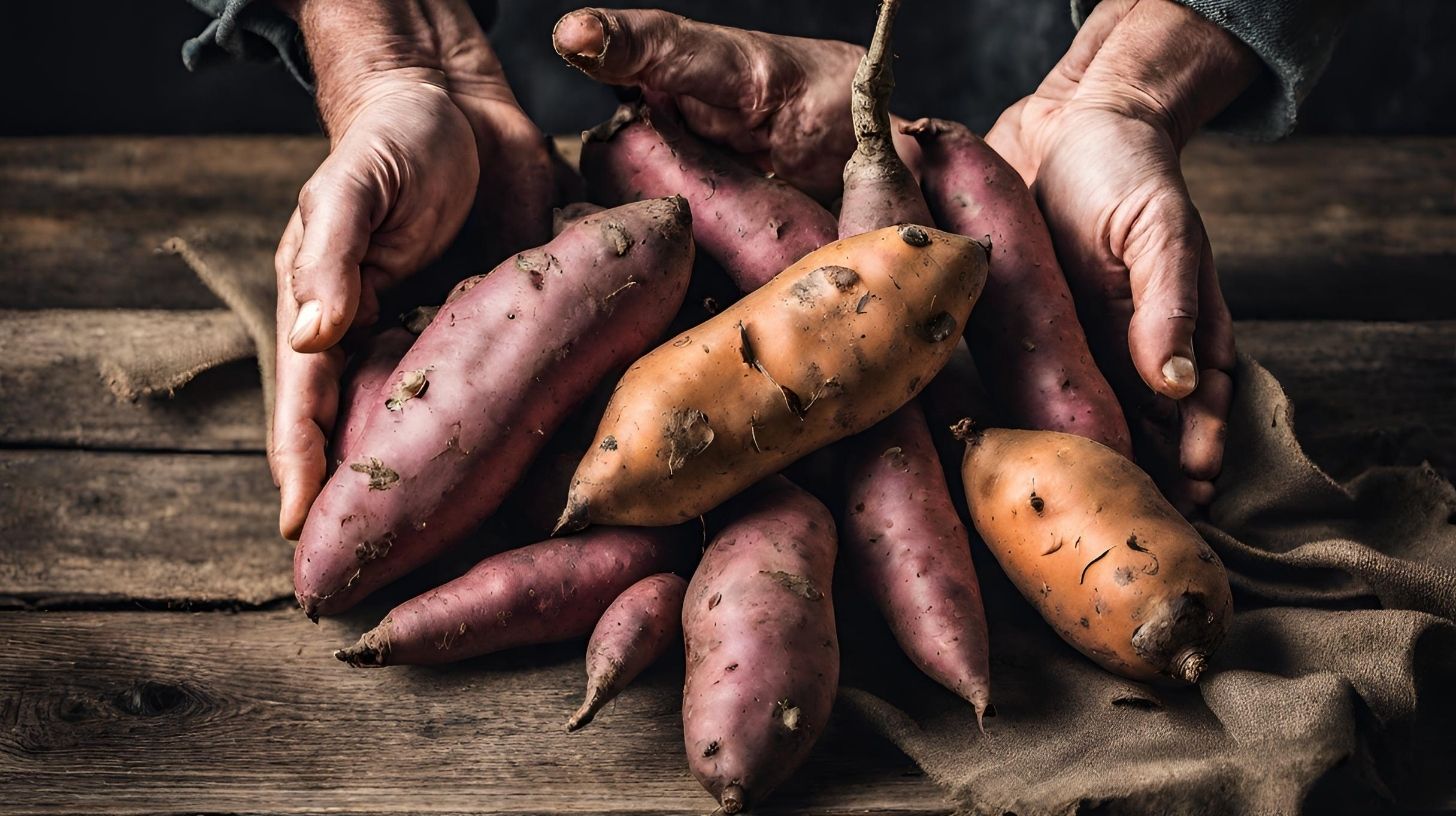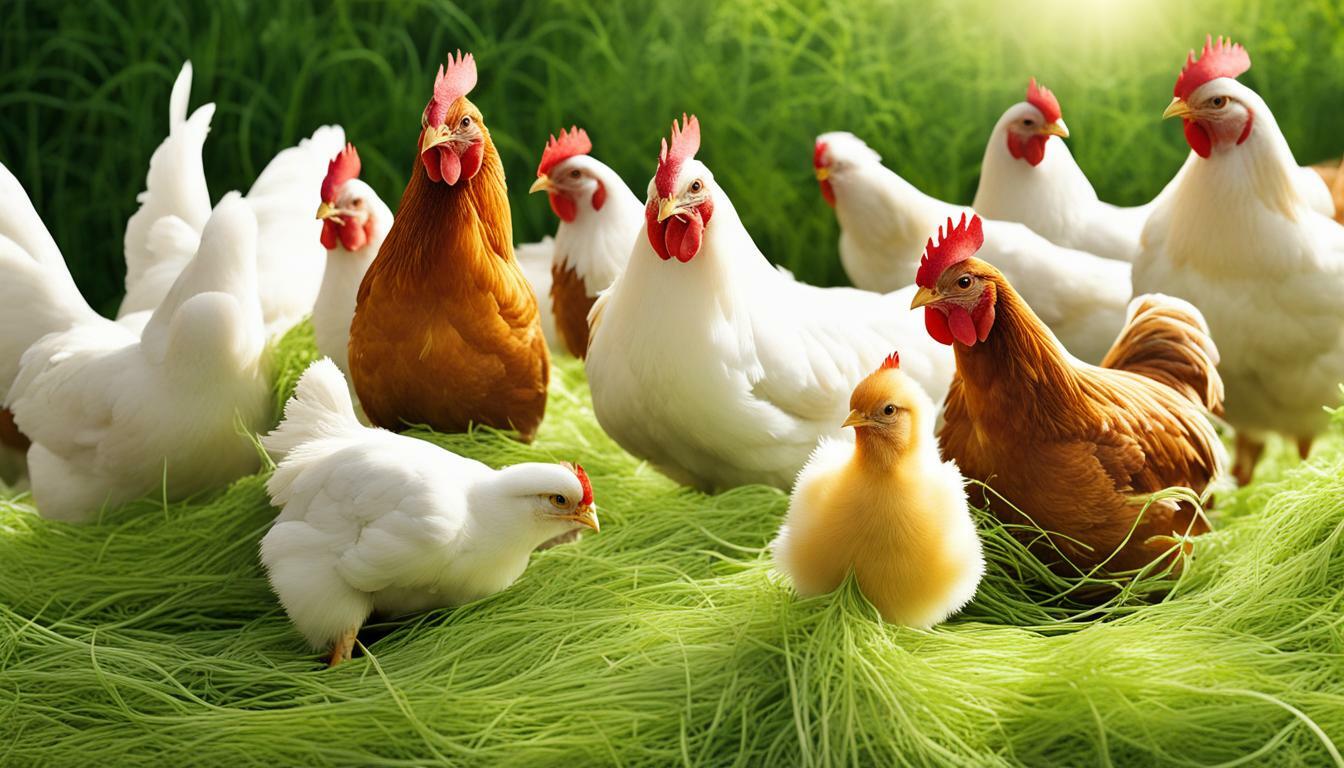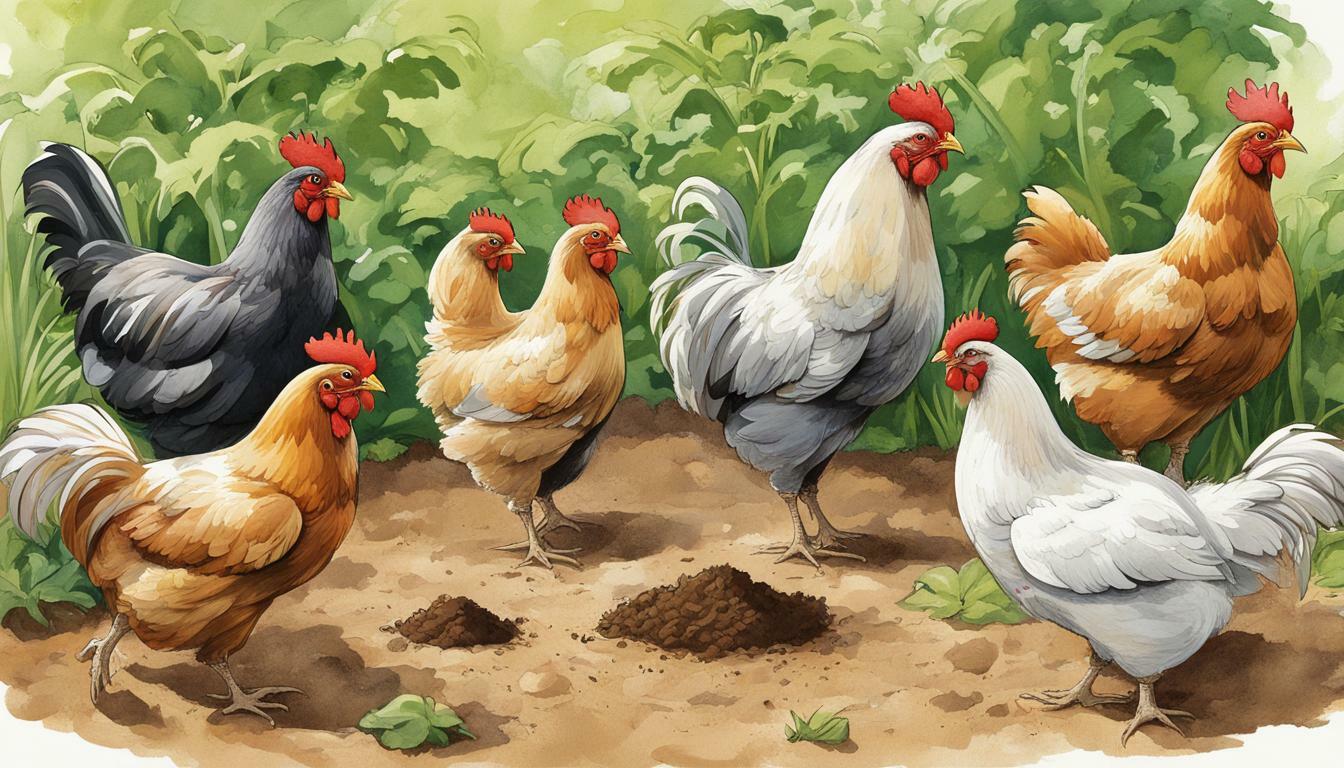Can Chickens Eat Hummus? Discover the Facts And Alternatives!

Table of content:
Having backyard chickens can be a fun and rewarding experience. As you get to know your feathered friends, you may find yourself wondering what treats you can share with your flock. Many chicken owners ask if hummus is safe for chickens to eat. In this article, we’ll take a look at what chickens can and cannot eat, and determine if hummus should be on the menu.
Is Hummus Safe for Chickens?
Hummus is a chickpea-based dip or spread that is popular in many cuisines. The primary ingredients in hummus are chickpeas (also called garbanzo beans), tahini, olive oil, lemon juice, and salt.
Chickpeas are perfectly safe for chickens to eat. In fact, garbanzo beans and other legumes are nutritious treats for chickens. They are high in protein and fiber. Many chicken keepers mix dried peas and beans right into their homemade feed mixes.
Tahini is a paste made from ground sesame seeds. Sesame seeds contain healthy fats and are safe for chickens in moderation. The same goes for olive oil – a small amount provides healthy fats. Lemon juice adds a burst of vitamin C. And salt, in small quantities, is fine for chickens as well.
So the ingredients that make up hummus are chicken-safe. But is hummus itself a good option? The answer is yes – in moderation. Store-bought hummus tends to be heavily seasoned, often with garlic or onion. Onions and garlic contain compounds that can be harmful to chickens if consumed in large amounts. Some hummus varieties may also have added spices.
As an occasional treat, a spoonful or two of plain hummus is fine. But don’t make it a daily habit. Opt for homemade hummus instead of store-bought so you control what’s in it. Scratch the seasoning, or stick to just a bit of lemon and salt.
What Do Backyard Chickens Eat?
While treats are fun, the mainstay of a chicken’s diet should be a complete feed formulated specifically for their age and purpose.
Chicken Feed
Layer feed is designed for egg-laying hens. It contains 16-20% protein and provides key nutrients for egg production like calcium. Broiler feed has a higher protein content, around 20-22%, to promote quick growth in meat chickens. There is also an “all flock” or “flock raiser” feed suitable for chicks, pullets, laying hens, and roosters.
Feed comes in crumble, pellet, or mash form. Chickens naturally peck and forage throughout the day. Pellets and crumble are easier for them to eat than mash. Free choice feeding – leaving feed available at all times in a feeder – allows chickens to graze as they desire.
Treats and Supplements
In addition to their regular feed, chickens enjoy treats! Healthy options include:
- Green leafy vegetables – kale, spinach, lettuce, arugula, etc.
- Squash and pumpkin flesh and seeds
- Unsweetened cooked oatmeal
- Mealworms
- Scratch grains – corn, barley, oats, wheat
- Fresh fruits – berries, apple slices, oranges, melons
Avoid iceberg lettuce, which has limited nutritional value. And go easy on starchy vegetables like potatoes, sweet potatoes, and corn, as well as fruits. Too much can lead to overweight chickens.
Supplements like oyster shells and grit give chickens the extra calcium and minerals they need for egg-laying and digestion. A cuttlebone in the coop also allows them to peck for additional calcium.
And don’t forget fresh water! Chickens need access to clean water at all times. Refresh it daily. In warm months, add electrolytes to their water to replenish minerals lost through panting.
Human Foods Chickens Can Safely Eat
Chickens love treats and table scraps are an indulgence. Here are some common human foods that are safe for chickens:
Fruits and Vegetables
Most fresh produce is chicken-approved! Safe fruits include apple slices, berries, cantaloupe, grapes, oranges, and bananas. Avoid avocado.
Great vegetable options are broccoli, carrots, celery, cucumbers, peppers, squash, sweet potatoes, and tomatoes. Cooked plain white rice and pasta are also okay in moderation.
Dairy and Eggs
Plain yogurt, cheese, and hard-boiled or scrambled eggs make tasty protein-packed treats. Avoid raw eggs to prevent chance of salmonella exposure.
Cheese should be given sparingly since it’s high in fat and salt. Also limit yogurt, since too much can cause loose stool.
Grains and Legumes
As mentioned above, chickens relish legumes like peas and beans. Unsweetened oatmeal and other cooked grains like barley, quinoa, and brown rice are nutritious options.
Popped popcorn and whole grain low-sugar cereals can be fed as the occasional snack. Avoid excess salt, sugar, and artificial flavors.
Meat and Seafood
Shredded cooked chicken, turkey, or lean beef provide a protein boost. Crickets, grasshoppers, mealworms, and even occasional shrimp, clams, or sardines are fair game! These should be treats, not everyday fare.
Foods That Are Toxic to Chickens
While chickens will peck at almost anything, some foods are poisonous or otherwise unsafe. Here are some things chickens shouldn’t eat:
Raw Beans
Raw kidney beans and undercooked beans contain the toxin phytohemagglutinin. Beans must be thoroughly cooked to deactivate this compound before feeding to chickens.
Raw Green Potato Peels
Potato peels from green or sprouted potatoes contain solanine, a nerve and enzyme inhibitor. Solanine is also found in eggplant leaves and green tomato leaves & stems.
Moldy or Rotten Foods
Moldy, rotten, or otherwise spoiled produce can contain mycotoxins and cause illness. Always remove old veggies from the coop.
Salty Foods
Excess salt is unhealthy for chickens. Avoid salty treats like chips, pretzels, salted nuts, or popcorn.
Chocolate and Caffeine
Chocolate contains toxic theobromine. Caffeine is also unsafe. So no coffee grounds, tea bags, cola, or energy drinks.
Alcohol
Fermented foods and beverages can cause neurological issues. No beer, wine,kombucha etc.
Poisonous Plants
Some garden plants like foxglove, rhododendron, and lily of the valley are poisonous. Check safety before allowing chickens to forage yard waste.
Compost and Manure
Eating active compost or manure can make chickens very sick. Fully aged compost is safer.
Meat, Fish, and Fatty Foods
Excessive protein and fat can lead to obesity and liver issues. Limit high-protein treats like meat and seafood.
Sugary Foods
Too many sweet treats will cause weight gain. Restrict sugary foods like candy, cookies, cakes, and fruit juices.
Use common sense when sharing food with chickens. Moderation is key – treats should be under 10% of total feed. If ever unsure about a food item, don’t change it. And never make a sudden change to their diet. Introduce new foods slowly.
Best Healthy Treats and Snacks for Chickens
Here is a handy list of the top 10 healthy treat ideas for spoiling your feathered ladies:
- Fresh greens – kale, lettuce, arugula, spinach. Hang a bunch inside the coop.
- Squash and melon – great for hydration on hot days.
- Berries – raspberries and blueberries. Scatter them and let the chickens hunt.
- Scrambled eggs – a good protein boost.
- Yogurt – plain unsweetened works best.
- Oats – dry or cooked.
- Veggie peels and tops – from carrots, beets, potatoes (not green).
- Sunflower seeds and chopped nuts – great source of fat.
- Crickets, worms, grubs – provide natural protein.
- Fruits – apple slices, banana chunks, grapes, oranges.
Remember to introduce new treats slowly over several days. Observe for any decrease in egg production or loose droppings, which could indicate an issue. Discontinue a treat if any hen shows a negative reaction.
Key Takeaways on Chickens and Hummus
To recap the answer to our original question – yes, chickens can eat hummus in moderation as an occasional snack. The ingredients in hummus like chickpeas, oil, and lemon juice are safe and provide nutritional benefits. However, chickens should not eat hummus daily since the flavorings could cause health issues if consumed in excess.
Follow these tips for hummus and treat feeding:
- Only provide 1-2 tablespoons hummus per chicken at a time, 1-2 times per week at most.
- Opt for plain homemade hummus, not store-bought. Or use canned chickpeas.
- Avoid seasoned, garlic, onion, or jalapeno flavored hummus.
- Make sure hummus has warmed to room temperature before feeding.
- Scrape off any excess oil, which can cause diarrhea.
- Introduce slowly over a week.
- Monitor for any decrease in egg laying or signs of illness.
- Discontinue if reactions observed.
- Treats should never exceed 10% of daily intake.
- Provide flock with species-specific layer feed as the main diet.
With some common sense and moderation, you can safely let your chickens sample new flavors and share tidbits from your table. Getting to know each bird’s likes and dislikes is part of the fun of flock ownership! Just be sure to keep nutritional needs first. A varied diet with their complete feed as the mainstay is the key to healthy, happy hens.
Final Thoughts
Backyard chicken keeping is a rewarding hobby, but does come with responsibilities. Learning what is and isn’t safe for chickens takes research and vigilance. While hummus and other people’s foods can be fun supplemental snacks, a nutritionally balanced feed should make up the bulk of their diet. Always monitor treat reactions carefully. By being informed and taking proper precautions, chicken owners can safely indulge their flock with yummy snacks while optimizing health and wellbeing. Happy pecking!
Welcome. I’m Adreena Shanum, the proud owner of this website, and I am incredibly passionate about animals, especially poultry. I founded adreenapets.com as a labor of love, stemming from my desire to share my knowledge and experiences with poultry enthusiasts worldwide.




